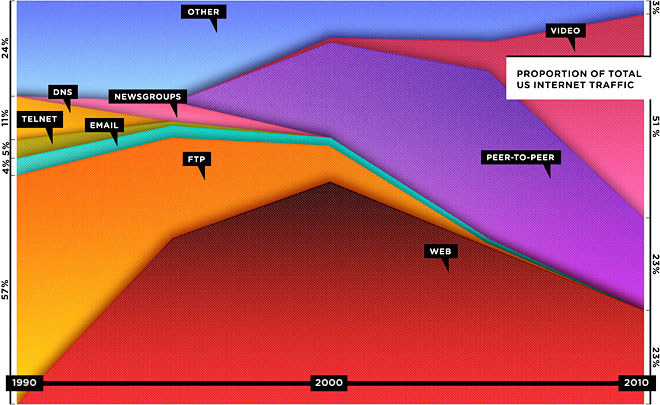The World Wide Web as a virtual library
https://en.wikipedia.org/wiki/World_Wide_Web
The World Wide Web (WWW) is an open source information space where documents and other web resources are identified by URLs, interlinked by hypertext links, and can be accessed via the Internet.
https://www.w3.org/Summary.html
The WWW project merges the techniques of networked information and hypertext to make an easy but powerful global information system.
http://webfoundation.org/about/vision/history-of-t...
https://en.wikipedia.org/wiki/History_of_the_World...
The World Wide Web ("WWW" or simply the "Web") is a global information medium which users can read and write via computers connected to the Internet. The hypertext portion of the Web in particular has an intricate intellectual history; notable influences and precursors include Vannevar Bush's Memex, IBM's Generalized Markup Language, and Ted Nelson's Project Xanadu. Paul Otlet's Mundaneum project has also been named as an early 20th century precursor of the Web.
Difference between the Web and the Internet: The Internet is a massive network of networks: a networking infrastructure. The Web is a way of accessing information over the medium of the Internet.
http://webfoundation.org/about/vision/history-of-t...
A brief intro to how Sir Tim Berners-Lee invented the WWW
https://www.w3.org/History/1989/proposal.html
Berners-Lee's proposal for a hypertext linked system for information management prior to the creation of the WWW
His boss replied: "Vague, but exciting"
The World Wide Web Virtual Library was the first index of content on the World Wide Web and still operates as a directory of e-texts and information sources on the web. It was started by Tim Berners-Lee creator of HTML and the World Wide Web itself, in 1991 at CERN in Geneva.
https://en.wikipedia.org/wiki/World_Wide_Web_Virtu...
Beginning in 2002, new ideas for sharing and exchanging content rapidly gained acceptance on the Web. This new model for information exchange, primarily featuring user-generated and user-edited websites, was dubbed Web 2.0. (…) a newly democratized Web!
The internet is like a vast uncataloged library. http://americanlibrariesmagazine.org/2010/01/20/10...

The Guardian: How the web lost its way – and its founding principles
"The web evolved into a powerful, ubiquitous tool because it was built on egalitarian principles and because thousands of individuals, universities and companies have worked, both independently and together as part of the World Wide Web Consortium [established by Berners-Lee so that stakeholders could work together in open groups to build a better web than any company could build by itself], to expand its capabilities based on those principles."
Consider a typical day: Facebook, Twitter, newspapers, podcasts, Skype, games on Xbox Live, Netflix
"You've spent the day on the internet – but not on the web," argued Anderson. "This is not a trivial distinction. Over the past few years, one of the most important shifts in the digital world has been the move from the wide-open web to semiclosed platforms that use the internet for transport but not the browser for display. It's driven primarily by the iPhone model of mobile computing. And it's the world that consumers are increasingly choosing, not because they're rejecting the idea of the web but because these dedicated platforms often just work better or fit better into their lives. The fact that it's easier for companies to make money on these platforms only cements the trend."
Berners-Lee: "don't you dare make a phone that goes only directly to facebook.com"
National Review: Chris Anderson and the Appliancization of the Internet
Wired; Chris Anderson and Michael Wolff: The Web is Dead. Long Live the Internet
"Facebook became a parallel world to the Web, an experience that was vastly different and arguably more fulfilling and compelling and that consumed the time previously spent idly drifting from site to site." (Wolff)
The Internet is the real revolution, as important as electricity; what we do with it is still evolving. (Anderson)